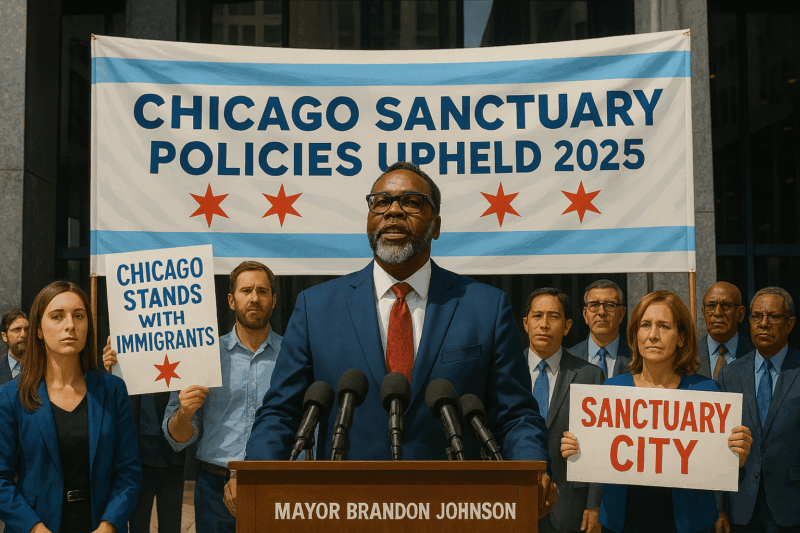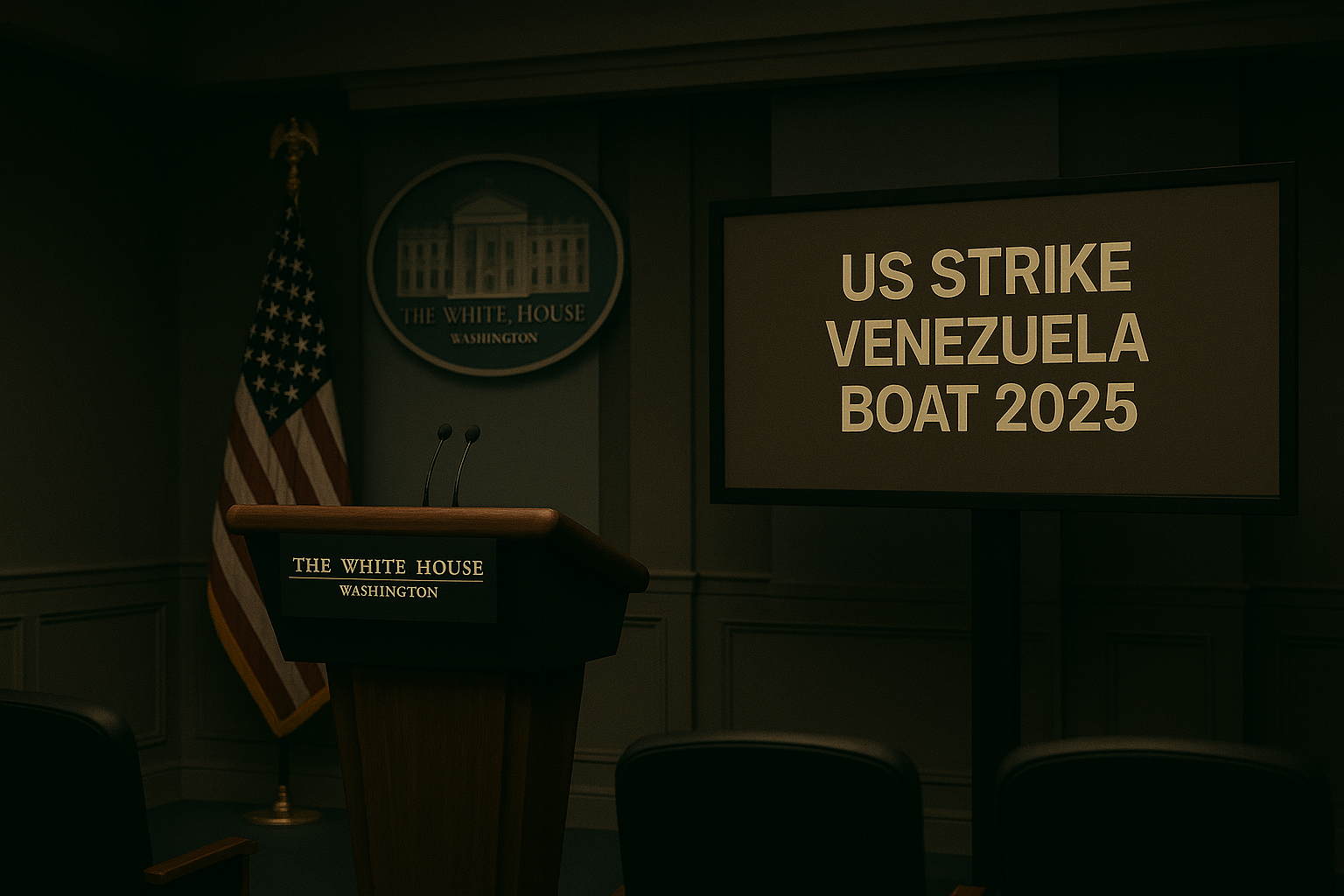On July 25, 2025, a federal judge in Chicago dismissed the Trump administration’s lawsuit challenging Chicago sanctuary policies 2025, a significant victory for Illinois, Chicago, and Cook County. The lawsuit targeted laws like the Illinois Trust Act, which limit local police cooperation with federal immigration enforcement. U.S. District Judge Lindsay Jenkins ruled that these policies are protected by the Constitution’s 10th Amendment. How does this ruling shape the immigration debate? This article explores the decision, its context, stakeholder reactions, and implications for sanctuary cities amid Trump’s deportation push.
Details of the Court Ruling
U.S. District Judge Lindsay Jenkins, a Biden appointee, dismissed the Trump administration’s lawsuit in its entirety on July 25, 2025, citing a lack of standing. The 64-page ruling argued that the Chicago sanctuary policies 2025, including the 2017 Illinois Trust Act and Chicago’s Welcoming City Ordinance, are protected by the 10th Amendment, which reserves powers not delegated to the federal government to the states. Jenkins stated, “The Sanctuary Policies reflect Defendants’ decision to not participate in enforcing civil immigration law—a decision protected by the Tenth Amendment.”
The lawsuit, filed in February 2025, alleged that these policies violated the U.S. Constitution’s Supremacy Clause by obstructing federal immigration enforcement. Jenkins rejected this, noting that compelling local cooperation would “allow the federal government to commandeer States,” violating constitutional protections. The dismissal was without prejudice, giving the Justice Department until an undisclosed date to amend and refile, per the Chicago Sun-Times.
Background of Chicago’s Sanctuary Policies
Chicago has been a sanctuary city since 1985, when Mayor Harold Washington signed an executive order ensuring immigrants without legal status could access city services without fear of deportation. The 2017 Trust Act, signed by then-Governor Bruce Rauner, prohibits state and local law enforcement from assisting federal Immigration and Customs Enforcement (ICE) in civil immigration matters, though cooperation is allowed for criminal warrants. Cook County’s policy similarly bans ICE from county jails unless a criminal warrant is presented.
These policies aim to build trust with immigrant communities, encouraging crime reporting without deportation fears. The lawsuit named Governor JB Pritzker, Chicago Mayor Brandon Johnson, Police Superintendent Larry Snelling, Cook County Board President Toni Preckwinkle, and Sheriff Thomas Dart, accusing them of “thwarting” federal efforts. From 2016 to 2025, ICE arrested 13,564 immigrants in Illinois, lodging 11,036 detainers, some for serious crimes, though studies like a 2016 report show immigrants commit fewer crimes on average than native-born Americans.
Stakeholder Reactions
Illinois and Chicago Officials
Governor JB Pritzker celebrated the ruling on X, stating, “Illinois just beat the Trump Administration in federal court. Their case challenging the bipartisan TRUST Act was dismissed.” His spokesman, Matt Hill, emphasized that Illinois prioritizes “fighting crime—not carrying out the Trump Administration’s unlawful policies.” Mayor Brandon Johnson echoed this, saying, “Chicago’s Welcoming City Ordinance is lawful and supports public safety.”
Cook County State’s Attorney Eileen O’Neill Burke praised the decision, noting it protects local crime-fighting efforts. “We need victims and witnesses to feel comfortable coming forward,” she said.
Advocacy Groups
The ACLU of Illinois applauded the ruling, with spokesman Edwin Yohnka stating, “The court was correct to prioritize local public safety and welfare over federal civil immigration enforcement.” The group called Trump’s mass deportation agenda “cruel and troubling.”
Public Sentiment
On X, users like @tinaissa hailed the ruling as a “huge W” for Mayor Johnson, arguing that tax-paying immigrants deserve citizenship opportunities. Conversely, @EWess92 expressed skepticism about the decision, anticipating an appeal to the Seventh Circuit.
Trump Administration
The Justice Department and Department of Homeland Security did not comment, but the White House called sanctuary cities like Chicago a safety risk. Spokesperson Abigail Jackson stated, “The government has the duty to protect American citizens from harm.”
Context of the Immigration Debate
The ruling comes amid Trump’s aggressive immigration crackdown, including a January 2025 executive order directing Attorney General Pam Bondi and Homeland Security Secretary Kristi Noem to penalize sanctuary jurisdictions. Chicago faced ICE operations in June 2025, sparking protests, as seen in photos of masked agents near Michigan Avenue. The lawsuit was part of a broader campaign, with similar suits filed against Los Angeles, New York City, Denver, and four New Jersey cities.
Pritzker and Johnson testified before Congress in 2025, defending sanctuary policies as enhancing public safety by fostering trust. Critics, like Representative Darin LaHood, accused them of prioritizing undocumented immigrants over taxpayers. A 2017 federal judge blocked Trump’s attempt to withhold funds from sanctuary cities, a precedent Jenkins’ ruling reinforces.
Broader Implications
- Constitutional Protections: The ruling affirms states’ 10th Amendment rights, limiting federal overreach. Jenkins warned that forcing cooperation would violate constitutional principles.
- Public Safety: Sanctuary policies encourage immigrant communities to engage with police, reducing crime underreporting. A 2016 study found immigrants commit fewer crimes than native-born citizens.
- Political Tensions: The dismissal fuels debates over immigration reform, with Pritzker criticizing Congress for politicizing the issue rather than passing comprehensive laws.
- Community Impact: Chicago’s 1.6 million immigrants, per 2025 estimates, benefit from policies ensuring access to services without deportation fears, though ICE’s 13,564 arrests in Illinois since 2016 highlight ongoing enforcement.
Conclusion
The dismissal of the Trump administration’s lawsuit against Chicago sanctuary policies 2025 is a landmark victory for Illinois and Chicago, reinforcing their right to limit cooperation with federal immigration enforcement. Judge Jenkins’ ruling, grounded in the 10th Amendment, upholds the Illinois Trust Act and Welcoming City Ordinance, prioritizing local safety. As Trump’s deportation efforts intensify, this decision sets a precedent for other sanctuary cities. Share your thoughts on this ruling below, and stay updated on Chicago’s immigration policies.






